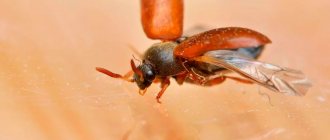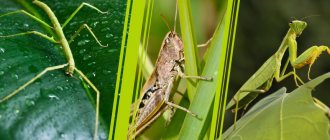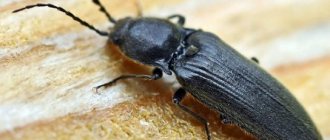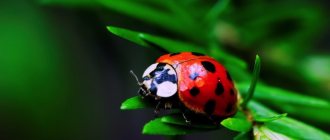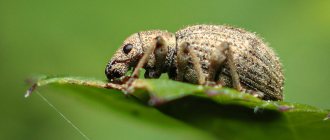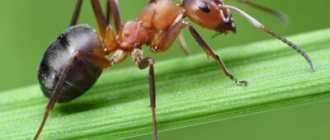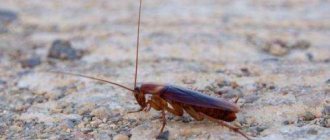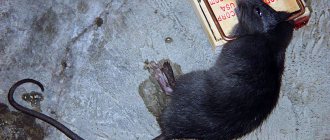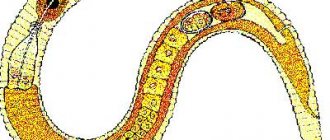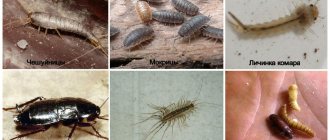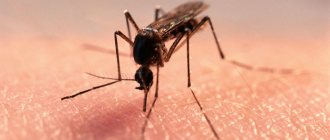Lumber is an integral part of the construction industry. Without them, it is impossible to build a single residential building made of wood.
Wood has its advantages and disadvantages. What are the disadvantages of wood:
- Burns quickly.
- Prone to rotting.
- Destroyed by insect attacks.
Buying lumber in a store and along with it acquiring a whole bunch of insects - pests - is a fairly common occurrence.
Some insects not only live in the tree, but also feed on the wood. At the same time, they make holes in the wood, called wormholes. In addition to the fact that the texture of the wood is disrupted, bacteria, fungi, and moisture penetrate through the wormholes. All this accelerates the process of wood destruction. By protecting wood from insects, we not only help preserve its structure, but at the same time protect it from rotting.
What insects destroy wood?
Chashel, bark beetle, termite are the worst enemies that can spoil the wood so much that later it simply needs to be destroyed. Moreover, they spoil the most expensive material. If you do not find out in time that there is an enemy in your home, this can cause significant damage. Insects can eat your entire home.
If you bought the material and it was clean, then over time, all sorts of bugs may also appear in it.
- Shashel , which has another name - woodborer. There is no danger from the beetle itself, but you should expect it from its larvae. The larvae have quite powerful jaws, thanks to which they simply gnaw through wood fibers, extracting the most nutrients from there.
- Bark beetle . This beetle feeds directly on the trunks, which are located under the bark.
- Termite . These pests live inside wood in droves and do everything clearly and smoothly. If an army of termites chooses your house as their home, expect trouble. They quietly penetrate inside the building and begin to infect it from the inside, thereby destroying the tree. The problem is that termites are quite difficult to detect. This can only be done during the summer period. And if you have a whole colony of termites living in your building, then the damage they will cause to the wood will be significant, especially if you do not know about the existence of termites in your house for a long time.
Wood grinder beetle
The wood borer beetle chooses wood that was previously infected with putrefactive fungi as a food source. Distinctive features of the insect:
- body length from 8 to 10 mm;
- the body is covered with short, stiff hairs;
- reddish-brown chitinous shell.
The beetle grinder spends its entire development cycle in untreated wood: for 3-10 years in the larval stage, about 6 weeks in the adult stage. It is quite easy to identify its presence. There are even round holes visible on the wooden surface, and wood dust nearby.
How to tell if your home is infested
It is important to identify the problem initially, otherwise the lumber or tree can become a powerful weapon against you.
Signs of infection:
- Visible remains of burrows on the wane indicate that a “surprise” in the form of a pest awaits you in the wood.
- If an ordinary board does not visually look infected, but it is quite light, then most likely a termite or shashel lives inside it.
- Wood flour signals to you that any pest can live in the building.
If you see significant damage when purchasing, it is better to refuse the purchase, even at minimal cost. And if you have already purchased lumber, wood, lining and only then discovered contamination, then it is better to burn it and not use this material in construction. Why? Because you will no longer be able to save the material, since all the pests live on a large scale and make a lot of moves in the tree.
Weevil
The weevil feeds on plant tissue that is infected with a fungal infection. They are classified by entomologists as phytophages. Distinctive features of the insect:
- woody color of the chitinous cover – beige, gray-black, light brown;
- body length – up to 3 cm;
- body shape – pear-shaped;
- elongated head shape with a “proboscis”.
Weevils can appear in wood even if the material has been treated against fungal infection by drying and ventilation. The pest intensifies the initial damage.
Pest control methods
There are two ways:
- Prevention.
- Treatment.
First way. This is a preliminary treatment of materials, due to which all pests will not have the desire to live in it. Antiseptic treatment. The cheapest and most accessible method. It is not praised because it is a temporary protection of the material. When treating wood or other material with an antiseptic, it does not penetrate to the very depths, it remains only on the surface, affecting a millimeter inside. This treatment lasts for several years - a maximum of 5, then repeated treatment with an antiseptic is required. Thermal method. This method requires ovens where the material is placed and heated. The heating temperature reaches 140 degrees. At this temperature, all nutrients disappear and moisture evaporates, making the wood density higher. This treatment has a high price when compared with the first processing method. Autoclave. This method is used mainly for the most expensive wood, since it is the most reliable and expensive. An autoclave is a sealed container into which the material is placed. The antiseptic, supplied under pressure, penetrates deep into the wood structure, which protects it from insect pests.
Furniture sharpener
The furniture grinder is found in large numbers in Europe. Among the characteristic features of the appearance are:
- brownish-black body;
- body length – up to 5 mm;
- long antennae and tenacious paws.
The furniture grinder prefers to colonize damp wood that has already partially decomposed. The larvae live in the sapwood for the entire 6-month development period, gnawing holes. This is where they pupate. You can determine the presence of a furniture grinder in wood material by torn and chaotically located holes that are inclined to the surface at an angle of 45 degrees.
How to treat infected lumber
Injection . This method is considered effective, so it’s worth trying. A sodium fluoride solution is injected into the larvae's passages; after treatment, the entrance is masked with the gruel of their baked goods, which is dipped in the same solution. Tapping . This method is usually used to combat shawl and bark beetle, because their larvae cannot tolerate vibration. Take an ordinary block so as not to damage the wall and simply tap the board around the entire perimeter. The larvae, unable to withstand the vibration, burst and the water flows out of them. Heating . This method is used for small structures that can be safely placed in the oven or microwave. You simply take the material and place it in the oven, then set the temperature to 60 degrees and heat the material. When heated, the protein that is inside the pests coagulates, causing them to die.
There are more original ways to control pests.
- Current – processing of material with high-frequency current. Here you will need expensive equipment.
- Gas – this method can be used to process small parts.
- The best option is resin . It can be applied either with a brush or through a pipette (only when heated). This method is not praised. It does not have the effect that suits you.
- You can get the effect using chemicals. All chemicals affect pests through the respiratory tract, through the skin and through the intestines. Chemicals are based on arsenic, nitrogen, phosphorus, chlorine and other harmful substances. Be careful. If you overdose, you may harm your health.
- The most effective and efficient way is drugs that contain sodium compounds . They will not harm human health and are approved by sanitary supervision. Before using this method, read the instructions and follow them. Be sure to wear a mask and gloves. After the work is done, ventilate the room.
Bark beetle
The bark beetle is often confused with the borer beetle. The insect was originally found only in the northern part of Europe, but now its habitat is the whole world. The body length of the pest reaches 6 mm, the color of the chitinous cover is light yellowish-brown.
The adult does not pose any harm, but the larva causes significant damage to construction wood. It eats tunnels in freshly cut coniferous trees, lives in it until pupation, after which the emerging adult beetle emerges to the surface.
Fumigation with phosphine
- Fumigation with phosphine
This slideshow requires JavaScript.
Fumigation is the treatment of premises with a special gas, in particular phosphine, using fog generators or special tablets and tapes, which, when the sealed packaging is opened, react with air and actively release gas into the surrounding space. The use of such gas ensures its maximum penetrating ability into the tree structure, allowing the destruction of pests at all stages of its development.
When using this method, the following circumstances must be taken into account:
- phosphine gas belongs to the group of highly toxic substances that are deadly to people and animals, therefore such treatment should only be carried out by persons who have undergone special training and are authorized to perform such work;
- this method is used only in the warm season when the heating devices are turned off and the entire house is de-energized;
- before starting treatment, it is necessary to remove all food, personal belongings, small household appliances, and pets from the premises being treated;
- it is also necessary to tightly close all windows, doors, chimneys, and seal the ventilation holes;
- After finishing the treatment, specialists must degas the room and thoroughly ventilate it for several hours.
It should be noted that despite its characteristics and certain labor intensity, this is considered the most effective in the fight against wood-boring beetles.
Let's give a brief description of each of them.
Insecticide treatment
This method involves treating foci of infection with special preparations in the form of solutions or aerosols that penetrate the wood and are capable of destroying beetles and their larvae. Treatment is carried out by spraying and/or injection, depending on the degree and extent of the damage. At the same time, the drugs do not act on beetle eggs, which is why this procedure is required multiple times. Considering that the drugs used are quite toxic, after such a procedure it is not recommended to enter the treated room for several hours and it must be thoroughly ventilated.
Microwave treatment disinsection
- Microwave disinfestation
This method involves heating a certain area of a wooden product with microwave rays to a temperature that leads to the death of both pests and their offspring. For this purpose, a special directional microwave emitter is used, which is placed in close proximity to the affected area.
The undoubted advantages of this method include:
- complete destruction of pests at all stages of their development;
- harmlessness to people, pets, processed structures and objects;
- the ability to process wood through a layer of any finishing materials (plaster, wallpaper, plastic panels, etc.);
- Possibility of processing at any time of the year, regardless of weather conditions.
The main disadvantages of microwave processing include the need to use expensive special equipment and the impossibility of using it in hard-to-reach places.
Prevention measures
To prevent the appearance of beetles in furniture, surfaces made of natural materials should be treated with an antiseptic, which will make the wood unsuitable for eating by pests. Examples of antiseptics: “Lingo”, “Difant”, “Pinotex”. The product is evenly distributed over the surface, paying special attention to cracks and holes.
When purchasing, carefully inspect each piece of furniture; the presence of holes and visible passages is a reason to refuse the purchase.
When arranging furniture, you need to avoid crowding, as this is a major factor in the occurrence of pests. To prevent the appearance of insects living in furniture, you should maintain the same temperature and humidity, regularly ventilate the room, and ensure that there is good lighting in the room. If the house is heated by stoves, the stoves should be fired regularly, the room should be ventilated, and good ventilation should be organized.
The risk of infection is minimal if surfaces are varnished or painted. Preventive treatment with disinfectants, for example, monochloramine, will also help. To treat kitchen furniture, odorless petroleum jelly is used.
Proper care of furniture and timely impregnation with antiseptics will help avoid infection with bark beetles and borers, as well as other pests.
